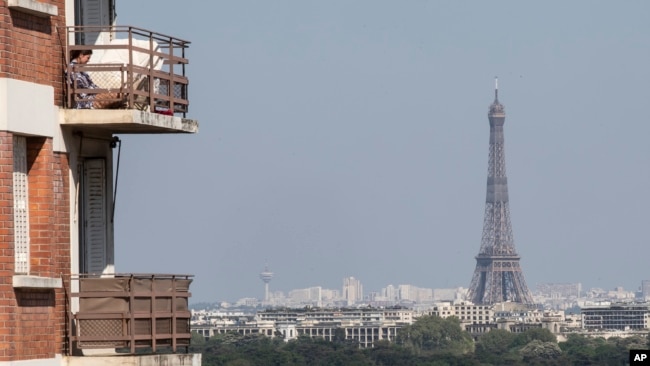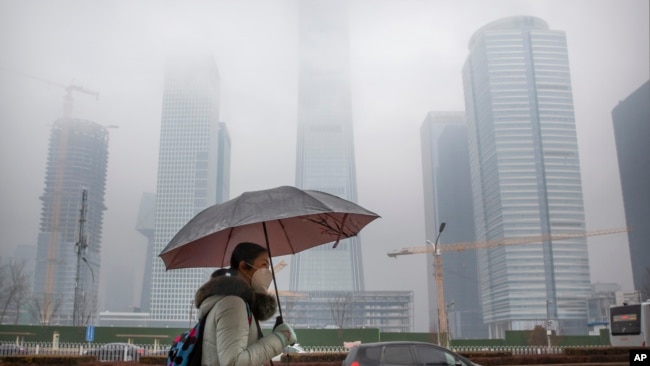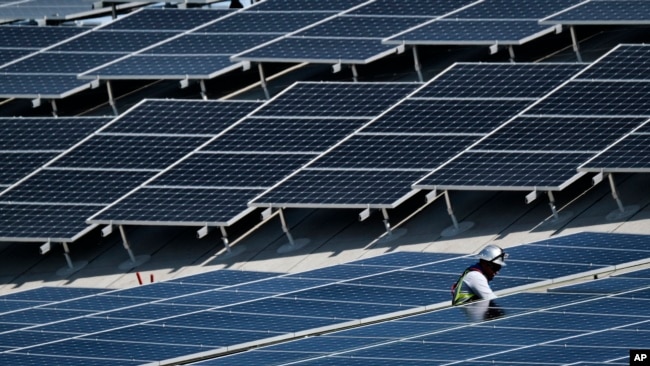経済成長は善か悪か
コロナに依る影響は経済活動からさらには環境問題にまで発展しています。
生産活動がスローペース、または休止になれば環境破壊が止む、
結果 地球温暖化が緩やかになり、パリ協定目標も達成、バラ色の未来に近づくのでは?と淡い期待をいだいていました。
ところが、VOAを読んで、それは甘い考えであることに気がついたのです。
ざっくり言うと、実はこうなるのです。
コロナウイルスが環境問題に及ぼす影響(和訳)
「コロナヴィールス危機は、世界中の汚染を減少させる結果となり、環境保護団体は歓迎しているが、これは一過性のことであり、生活が元に戻れば、汚染も元のレベルに戻るだけだと専門家は警鐘を鳴らす。
ニューヨークからパリ、北京まで都市の空は政府のステイホーム命令のよりこれまでになくきれいになっている。
人口衛星データでも北アメリカにおいては二酸化炭素量が過去5年と比較しておよそ30%減少しているのです。
事実、マサセーセッチュ州知事が3月24日に、学校・仕事の稼働停止を発令して以来、交通量は2/3減ったのです。
道路交通量と飛行機運行の大幅の落ち込みは、世界中の石油需要を冷え込ませています。アメリカは他の国より石油消費量が多いのですが、1月-3月半ばまでの間における需要は平均需要より31%少ないとのこと。
化石燃料-例えば石炭、石油、天然ガスの製造の減少が、5%の汚染排出量を今年低くする可能性があると専門家は予測しています。これは、これまでにない大幅な減少であり、2008-2009の世界恐慌の4倍以上です。
しかしながら、「これは続かない」とコロンビア大学気候変動センターの専門家は言う。
衛星画像から中國ではコロナ収束後の企業再開により大気汚染上昇が見られた。
コロナ危機は再生可能エネルギー会社にも影響を及ぼしており、風力発電建設2020予測を12%押し下げた。
加えて、再生可能エネルギー投資は低く、電気自動車売り上げは去年と比較して40%落ち込んだ。しかしこの落ち込みも一時的だとされる。
とはいえ、ソーラーや風力の建設費は近年下がってきており、競争力を増してきている。時には、化石燃料より高いつくことは確かにある。いずれにしろ、建設は低迷しているが、人々が完全に仕事に戻れば改善するだろうと専門家は言う。
しかしながら、再生可能エネルギー予測を立ているブルームバーグNEFはパリ協定2015合意書で決議された環境変動目標に世界が達しないと示している。合意書の主目標は地球を2℃以上上昇させないことであると述べている。
クリーンエネルギーBNEF責任者は、コロナ禍による経済ダメージが深ければ深いほど、国際連合の目標に達するのはより難しくなるだろうと話す。
「もし、このまま停滞もしくは財政と再生可能エネルギー建設をより難しくさせることで終わってしまったならば、これまでの挑戦をさらに困難にするであろう。」
グリーンエネルギーの自給率について
なるほど簡単じゃない、経済が復興しなければ温暖化抑制の救世主であるグリーンエネルギ建設がはかどらない、というわけです。
当然生産活動増加曲線を上回るグリーンエネルギー供給曲線を描けなければなりません。二つの狭間で焦燥感を感じます。
グリーンエネルギー自給率割合2019年度版
デンマーク 64.17% ドイツ 40%
日本はわずか 16%
パリ協定が泣いています。
人間の欲が生む飽くなき経済成長
ここで、今一度考えたいことがあります。
そう!!タイトルに戻ります。今日の核心です。
経済成長率何%、よく聞きますが、経済成長って必要でしょうか?
先進国は総じて、少子高齢化。問題はどこも似たり寄ったりです。
小さな経済コミュニティーでいいのではありませんか?
どこまで収益を獲得すればいいのでしょうか。どこまで利便性が必要なのでしょうか。
私はこれを”人間の欲”と呼びます。
アマルティア・センの言う「合理的な愚か者」、その通りです。
徒歩より、電車、それより飛行機。。。そのために人は時間を失いました。
金儲けの鬼と化し、静かで豊かな思考を失いました。
様々なITツールにより、相手への思いやりを心の機微なる触れ合いを欠落させました。
とりもなおさず、今の現世界は私たちの選択が創りだしたものです。
でも、ここからでも私たちは選択できるのです。
効率的だから?何がでしょう。
皆と同じが安心だから?自己確立しましょう。
私たちは考える葦となり、足るを知ることができるのです。
敢えて言うなら”我慢”を甘受しましょう。不便さを受け入れましょう。
4足歩行から2足歩行へ、得たものも多く、失ったものもあまりに多いのです。
一人一人の思考が行動が未来を築くのですから。
原文
The coronavirus crisis has resulted in major drops in pollution across the world. Environmental groups welcome this change. But, some experts warn that pollution is likely to return to levels before the crisis once life returns to normal.
Skies have been clearer in cities from New York to Paris to Beijing as governments closed businesses and schools and issued stay-at-home orders.
Satellite data shows nitrogen dioxide has dropped about 30 percent in parts of the Northeast United States compared to the previous five years. Nitrogen dioxide is a major form of air pollution.
Michelle Manion is an economist with the U.S.-based World Resources Institute. On a recent day in Boston, Massachusetts, she noted that the air was so clear that she could read the letters on top of the Prudential building, a well-known city structure.
“I’ve never been able to do that,” Manion told VOA. “It’s really amazing.”
Massachusetts Governor Charlie Baker began ordering schools and businesses to close on March 24. Since then, traffic on area roads has been cut by about two-thirds. "People are not commuting," Manion said. "It's a huge difference."
Large drops in road traffic and air travel have greatly reduced oil demand worldwide. The United States uses more oil than any other country. But, U.S. demand fell 31 percent below average for January to mid-March, the U.S. Energy Information Administration reported.
Drops in production for fossil fuels such as coal, oil and natural gas may lower pollution emissions by 5.5 percent this year, the British climate research website Carbon Brief predicts. That would be the largest reduction ever by far – more than four times the decrease during the 2008-2009 Great Recession.
But some experts say such reductions are not likely to last. "The general expectation is that most of this will pick up once the crisis is over," Michael Gerrard told VOA. He is director of the Saban Center for Climate Change Law at New York’s Columbia University.
Satellite images have shown recent rises in air pollution in China, which reopened some industries after reporting the spread of the new coronavirus had slowed.
The coronavirus crisis has also affected renewable energy companies. BloombergNEF (BNEF), an energy research organization, recently lowered its 2020 estimate for new wind power construction worldwide by 12 percent. The organization’s estimate for solar power was cut by eight percent.
In addition, investment in renewable energy is low and electric vehicle sales are down 40 percent compared to last year. But Gerrard says those drops are likely temporary.
"The cost of building solar and wind has plummeted so much in recent years that it's highly competitive. It's really often outbidding fossil fuels," Gerrard said. "That hasn't changed. We've seen a slowdown in the construction. But I think that should pick up once people are fully back to work."
However, BloombergNEF's estimates for renewable energy expansion show the world falling short of climate change targets set by the 2015 United Nations Paris agreement. A main goal of that agreement is to keep Earth from warming more than two degrees Celsius.
Logan Goldie-Scot is BNEF's head of clean energy. He told VOA that the deeper the economic damage is from the coronavirus, the more difficult it will be for the world to reach the U.N. target.
"If it ends up delaying or making it harder to finance and build renewable energy projects, then this will make what was already a challenge even harder," Goldie-Scot said.


